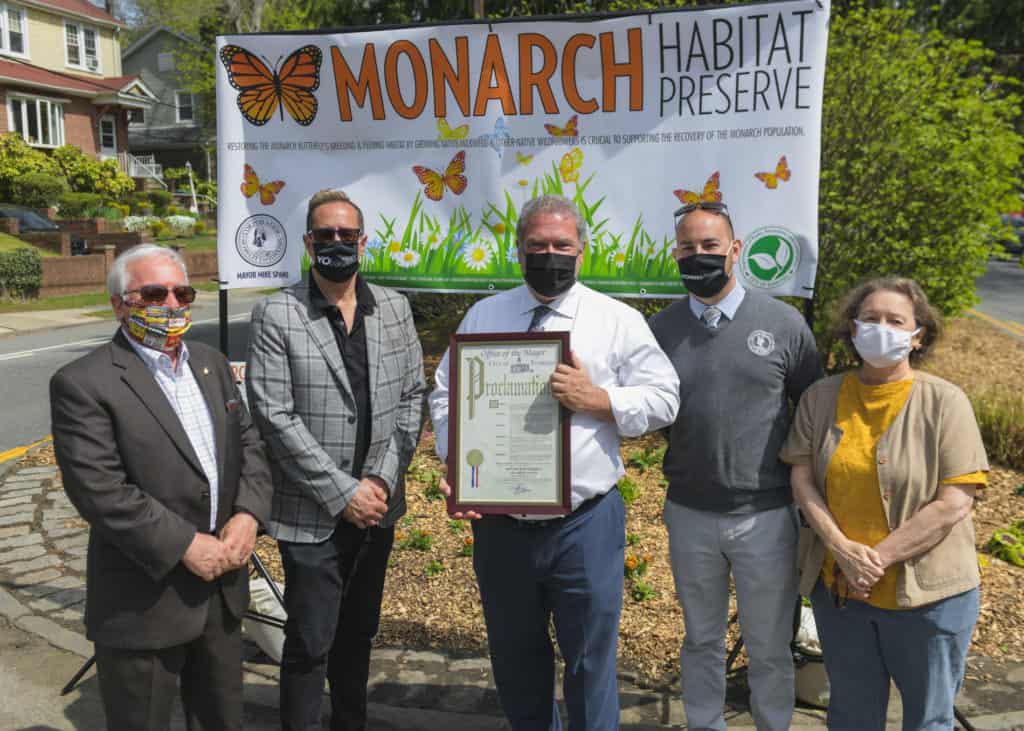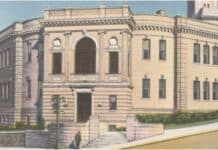
In celebration of Earth Week, Yonkers Mayor Mike Spano today signed the National Wildlife Federation’s “Mayors’ Monarch Pledge,” committing to take actions to help save the declining monarch butterfly and other pollinators. Yonkers is now part of an expanding network of cities working to create Monarch Butterfly Preserves in local parks and right-of-ways to save the decline of monarch butterflies.
Mayor Spano stated, “In 1996, monarch butterflies numbered around 1 billion in the U.S. Today, their numbers have declined significantly as a result of numerous threats, particularly the loss of habitat due urban development, agricultural practices and climate change. More than being beautiful, monarch butterflies contribute to the health of our planet. In Yonkers, we are committing ourselves to the conservation of the monarch butterfly by planting milkweed and other plantings across the city.”
The Yonkers Department of Parks, Recreation and Conservation, in collaboration with the Mayor’s Office of Sustainability, are planting monarch butterfly habitat preserves at the following city locations:
Yonkers Parks Department Headquarters (Nepperhan Ave.), Rumsey Road arterial,Lincoln Park, Cook Field, JFK Marina Boathouse, Central Park Avenue at New York State I-87, Rory O’Moore Field, Conor Park, Old Croton Aqueduct at Seymour St.
Some of the city plantings include: penstemon digitalis ‘husker red’; salvia ‘meadow ballet blend’; zinnia ‘profusion orange’; liatris spicata alba ‘blazing star’; buddleia davidii ‘black night’; echinacea ‘pow wow wild berry’; echinacea purpurea ‘magnus’; asclepias tuberosa ‘milkweed or butterfly weed’; and Calamagrostis Karl Foerster ‘hybrid feather reed grasses’.
Mayor Spano added, “Through this program, more than 6,500 acres of monarch habitat already have been restored nationwide. I encourage residents and community organizations to plant monarch gardens at their homes or in their neighborhoods.”
“Like most environmental issues we face today, the decline of the Monarch population is a consequence of human impact,” said Jason Baker, Director, Mayor’s Office of Sustainability. “Signing onto the Mayor’s Monarch Pledge and establishing Monarch Preserves throughout Yonkers will not only support habitat restoration, but reflects the City’s commitment to protecting environmental health.”
“The Parks Department is committed to participating in this important initiative through our nursery division,” said Steve Sansone, Deputy Director, Yonkers Department of Parks, Recreation and Conservation. “It is hoped that doing our small part in our parkland and on our right of ways will help protect this species and encourage others to follow.”
“By working together, we can ensure that every American child has a chance to experience majestic monarchs in their communities,”said Patrick Fitzgerald, senior director of community wildlife at the National Wildlife Federation. Through the National Wildlife Federation’s Community Wildlife Programs, cities, counties and towns across the United States are helping local wildlife by restoring and reconnecting habitat in urban and suburban areas while reconnecting people with nature. For more information about the “Mayors’ Monarch Pledge,” visit: NWF.org/MayorsMonarchPledge.





